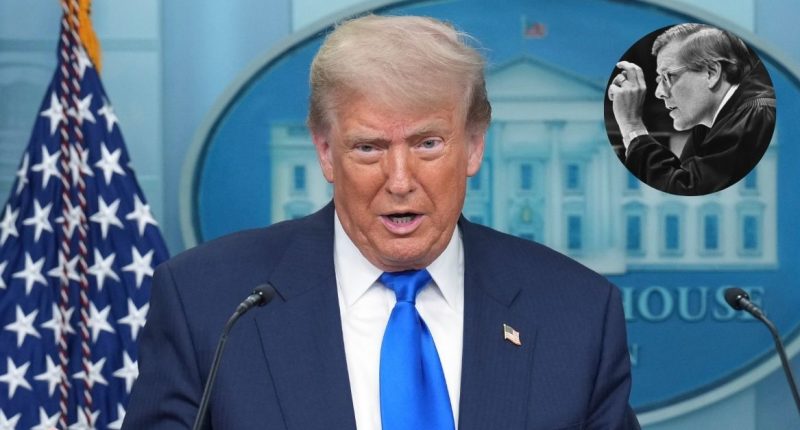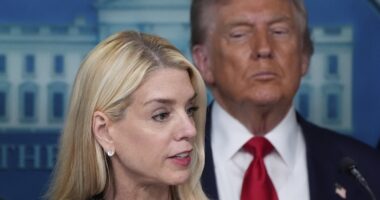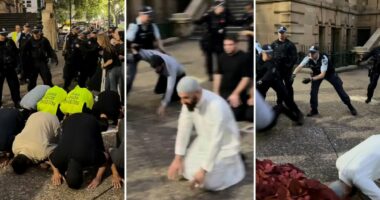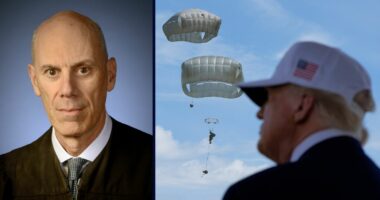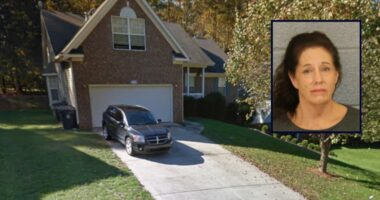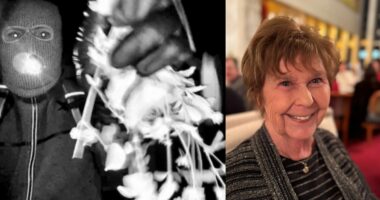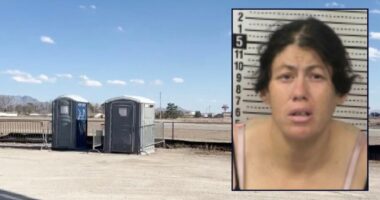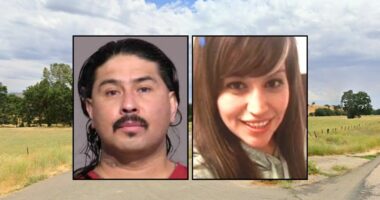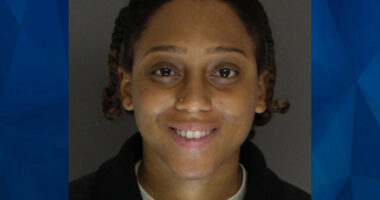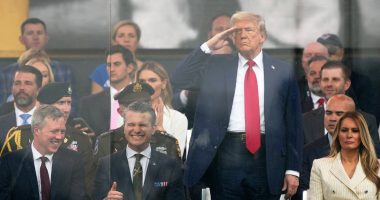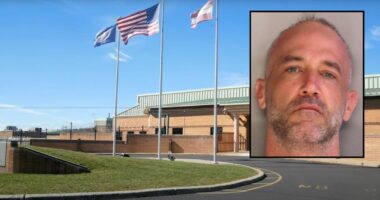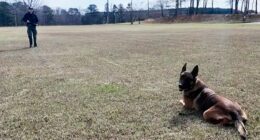Share this @internewscast.com
Background: In the White House briefing room on June 27, 2025, President Donald Trump addressed the media in Washington (AP Photo/Jacquelyn Martin). Meanwhile, an inset features then-Suffolk Superior Court Judge William G. Young making a gesture during a Boston hearing on November 21, 1980 (AP Photo/Dave Tenembaum).
A veteran federal judge delivered a strong warning to the Trump administration prior to a bench trial related to a First Amendment case, advising against using intimidating actions towards witnesses.
Senior U.S. District Judge William G. Young, appointed by Ronald Reagan and based in Boston, issued an order denying further discovery before the impending July 7 trial. He emphasized that the courtroom is a “safe place” and warned that “[a]ny retribution from any quarter by anyone will be met with the full rigor of the Court’s resources.”
Love true crime? Sign up for our newsletter, The Law&Crime Docket, to get the latest real-life crime stories delivered right to your inbox.
Young is presiding over the case brought in March by academic advocacy organizations, including the American Association of University Professors, challenging the Trump administration’s stated intention “to carry out large-scale arrests, detentions, and deportations of noncitizen students and faculty who participate in pro-Palestinian protests and other related expression and association.” The plaintiffs argue such demonstrations are a part of their First Amendment rights — and the federal government’s “campaign of coercive threats to arrest, detain, and deport noncitizen students and faculty based on their pro-Palestinian expression and association” directly violates the Constitution.
A trial considering the First Amendment case will begin on July 7, and in the preceding days, Young has sought to establish ground rules. By warning the Trump administration — and everyone else — that any “retribution” against witnesses or other parties will be punished, he also maintained that any such acts of intimidation would “prove” the plaintiffs’ very point.
“This Court is a safe place. The plaintiffs and their witnesses may fully participate in the trial process without fear of retribution knowing they are protected by this Court’s order. Indeed, were there to be any violation traceable to any of these defendants, it would prove the plaintiff’s case,” Young wrote in his Monday order. “Likewise, law enforcement officers testifying about enforcement of the laws passed by the Congress of the United States will receive the same courtesy and respect that has long been a hallmark of this Court.”
Young’s Tuesday order also denied the parties from having any anonymous witnesses testify “save upon a far more compelling showing than alluded to thus far.” He held that because the court is a “safe place,” such concealment is unnecessary. It is here that he perhaps most harshly — yet indirectly — criticized the administration for its assailment on the federal judiciary.
“There is altogether too much fear of our government abroad in our land today. Courts are part of government. It is in the dignified courtrooms of our nation that most precious aspect of our First Amendment rights are hammered out,” he wrote. “All participants in the trial process, be they litigants, witnesses, or attorneys, are engaging in the central practice of the First Amendment — the right formally to petition our government.”
“This is why those courageous law firms who stood up to retribution were so swiftly and emphatically vindicated,” he added, pointing to the Big Law firms that won relief after the Trump administration targeted them.
The Massachusetts judge concluded by quoting another judge, the late U.S. Circuit Judge Richard S. Arnold of the 8th Circuit U.S. Court of Appeals: “‘There has to be a safe place. We have to be it.'”
“For 235 years of continuous sittings, the United States District Court for the District of Massachusetts has been that ‘safe space,'” Young wrote. “We shall not falter.”
